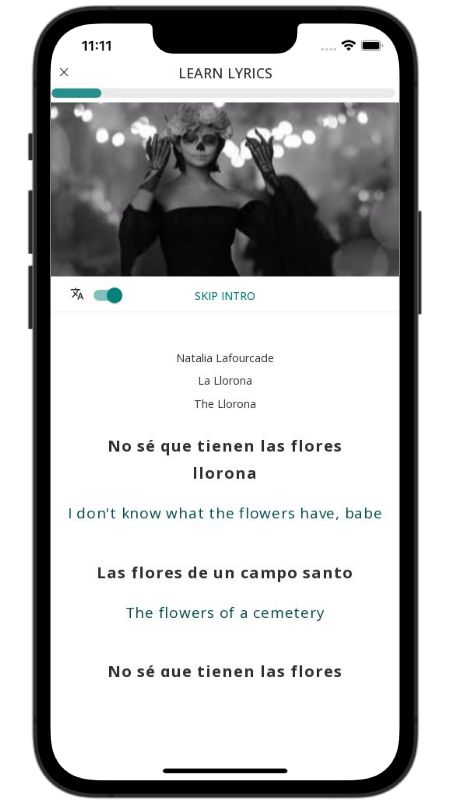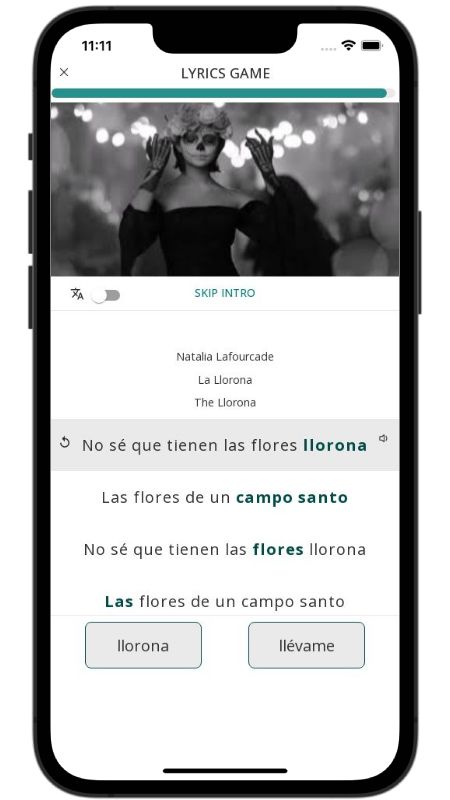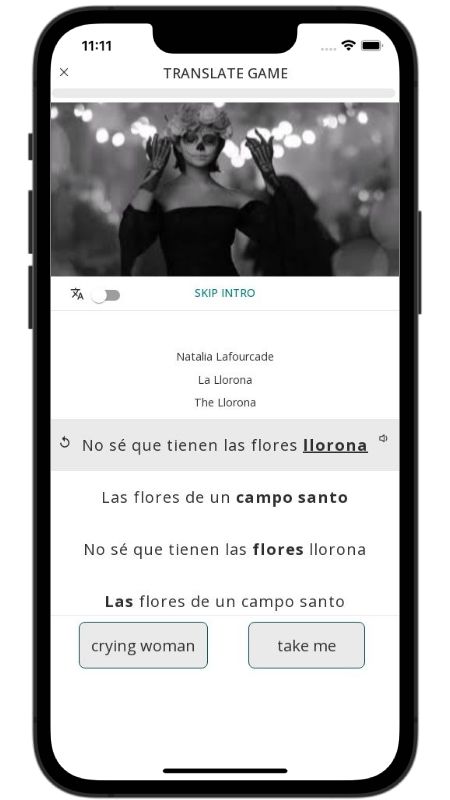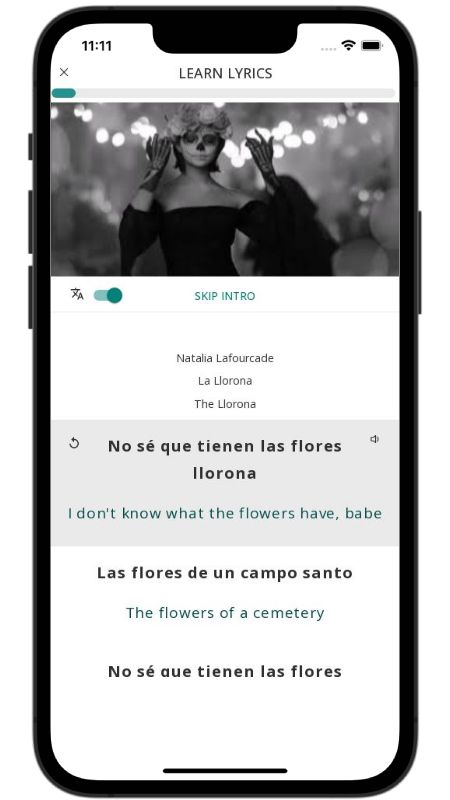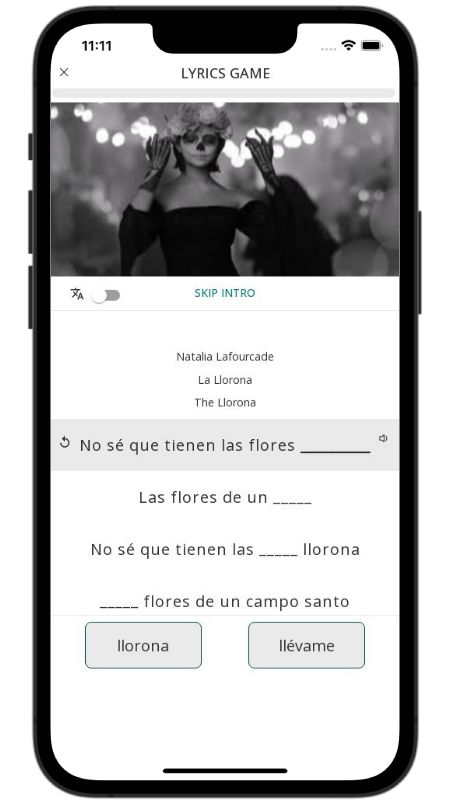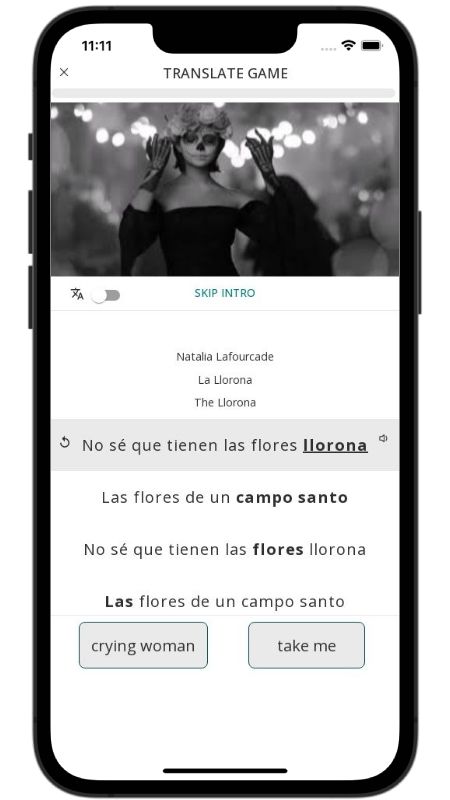La Llorona Lyrics in English Natalia Lafourcade
Below, I translated the lyrics of the song La Llorona by Natalia Lafourcade from Spanish to English.
These lyrics have verified word for word translations. Click any lyric word to see the translation and hear the pronunciation!
I don't know what it is that the flowers have, Llorona
The flowers from a graveyard
I don't know what it is that the flowers have, Llorona
The flowers from a graveyard
That when the wind moves them, Llorona
It seems that they're crying
That when the wind moves them, Llorona
It seems that they're crying
Oh my, Llorona, Llorona, Llorona, you are my darling
Oh my, Llorona, Llorona, Llorona, you are my darling
They'll take me away from loving you, Llorona
But forgetting you, never
They'll take me away from loving you, Llorona
But forgetting you, never
To an iron Holy Christ, Llorona
I told him my sorrows
To an iron Holy Christ, Llorona
I told him my sorrows
How great my sorrows must have been, Llorona
That the Holy Christ wept
And how great my sorrows must have been, Llorona
That the Holy Christ wept
Oh my, Llorona, Llorona, Llorona, from a lily field
Oh my, Llorona, Llorona, Llorona, from a lily field
The one that doesn't know about love, Llorona
Doesn't know what torment is
The one that doesn't know about love, Llorona
Doesn't know what torment is
Everybody calls me the black one, Llorona
Black but loving
Everybody calls me the black one, Llorona
Black but loving
I am like green chili, Llorona
Spicy but tasty
I am like green chili, Llorona
Spicy but tasty
Oh my, Llorona, Llorona, Llorona, take me to the river
Oh my, Llorona, Llorona, Llorona, take me to the river
Cover me with your shawl, Llorona
Because I'm dying of cold
Cover me with your shawl, Llorona
Because I'm dying of cold
If because I love you, you want, Llorona, you want me to love you more
If because I love you, you want, Llorona, you want me to love you more
If I've already given you my life, Llorona, what else do you want? do you want more?
If I've already given you my life, Llorona, what else do you want? do you want more?
Oh my, oh my, oh my, Llorona!
Oh my, oh my, oh my, Llorona!
Lyrics and Translations Licensed & Provided by LyricFind
Did you like this lyrics translation?
Did you know?
In addition to reading lyric translations, you can now learn Spanish with music and lyrics from your favorite artists.
Yes, including La Llorona by Natalia Lafourcade!
No more boring lessons. You can now learn with engaging and culturally relevant lyrics from the best artists.
Apple and App Store are trademarks of Apple Inc.
Google Play and the Google Play logo are trademarks of Google LLC.
iOS AppAndroid AppWeb LessonsFree PDF WorksheetsJoin ClassroomLyrics TranslationBlogAbout UsBuy as GiftLifetime

